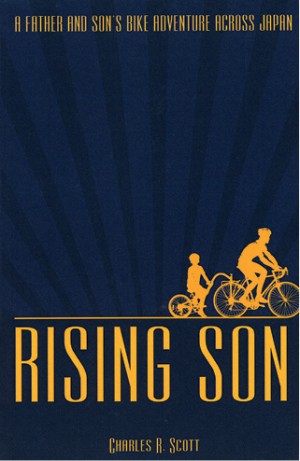
Charles R. Scott, BA’90, and his children—Sho, age 12, and Saya, age 6—are cycling the Lewis and Clark Trail this summer. While they’ll journey the first 1,500 miles by car in order to complete their adventure during the school break, they’ll ride bikes and carry about 100 pounds of gear through the Rocky Mountains for the remaining 1,700 miles. This isn’t the first such trip the New York family has taken.
Scott’s first trip, riding 2,500 miles across Japan with Sho when his son was 8 years old, is chronicled in Rising Son: A Father and Son’s Bike Adventure Across Japan, released in February by Third Wheel Press.
“I just wanted to take a two-month sabbatical from work and do something crazy with my son,” Scott says about the first trip. “I wanted to slow down time. But I kept a journal, and after a few weeks, I was writing more and more and realized I was writing the book I’d always wanted to write.”
Writer and family adventurer is Scott’s new career. “I worked at Intel for 14 years,” he says, “and I could have continued and lived the corporate executive lifestyle, but I wanted to do something more interesting while my children were young. What I realized as I was watching my children grow is how brief that phase is when they need you and want to be with you—that period when you can have a dramatic impact on their lives.”
Since that first cycling trip, Scott has included his daughter, Saya, who rides a trailer bicycle. (A trailer bicycle is not a tandem, but has its own gears and chain to allow the adult to do most of the pedaling). She completed their tour around the circumference of Iceland when she was just 4 years old. Last summer’s bicycle trip took them through Europe. Scott’s wife, Eiko, works for the United Nations and joins them when she can. Each trip also includes a charitable component and scientific projects that engage the children. Afterward, Scott and his children do presentations at schools and for other groups.
“One of the rhetorical questions I’ll ask after presentations is, ‘Can a 6-year-old girl pedal over the Rocky Mountains?’” Scott says. “If a 6-year-old girl can pedal over the Rocky Mountains, then what else can she do?
“Kids can do a lot more than most adults think. They are resilient and remarkable in the things they can do, and even if you’re 6 years old, you can have an impact on the world.”
Follow the Scott family’s blog about their summer journey.
Also follow Charles Scott on National Geographic’s Intelligent Travel blog.

MORE RECENT BOOKS
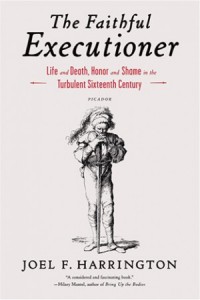
Joel F. Harrington, professor of history, The Faithful Executioner: Life and Death, Honor and Shame in the Turbulent Sixteenth Century (2013, Farrar, Straus and Giroux)
Based on the rare journal of a Renaissance-era executioner, The Faithful Executioner takes the reader deep inside the alien world of Meister Frantz Schmidt of Nuremberg who, during 45 years as a professional executioner, personally put to death 394 individuals and tortured, flogged or disfigured hundreds more. But the picture of Schmidt that emerges from his personal papers is not that of a monster. Could a man who routinely practiced such cruelty also be insightful, compassionate—even progressive?
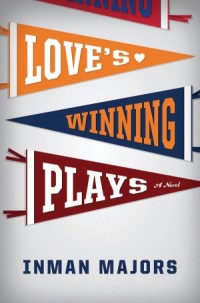
Inman Majors, BA’86, Love’s Winning Plays (2012, WW Norton & Co.)
When SEC football coach Von Driver takes his motivational magic on a preseason weekend of schmoozing between coaches and fans, inexperienced graduate assistant Raymond Love goes along as his wide-eyed errand boy. Also along is the athletic director’s daughter, whom Love has tried to win by joining her book club. Will Love master the art of coach-speak? Will he win the affection of the girl? This comedic novel about the world of college football is Majors’ fourth.
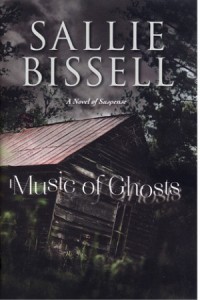
Sallie Bissell, BA’71, Music of Ghosts (2013, Midnight Ink)
Deep in the Appalachian woods stands the old Fiddlesticks cabin, scene of a bloody double murder from decades past. Now the haunted cabin lures young thrill-seekers who hope to hear the killer’s ghostly fiddle music. This is the fifth novel in Bissell’s series featuring Mary Crow, a half-Cherokee lawyer from the fictional mountain town of Little Jump Off, N.C.
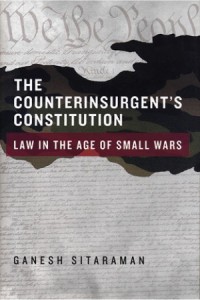
Ganesh Sitaraman, assistant professor of law, The Counterinsurgent’s Constitution: Law in the Age of Small Wars (2012, Oxford University Press)
Since the “surge” in Iraq in 2006, counterinsurgency effectively became America’s dominant approach for fighting wars. Yet many of the major controversies and debates surrounding counterinsurgency have turned not on military questions but on legal ones. Sitaraman explains why law matters in counterinsurgency.
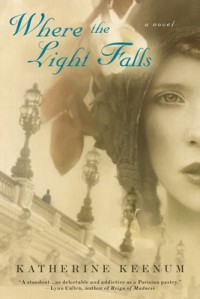
Katherine Keenum, BA’69, Where the Light Falls (2013, Berkley)
As the Belle Epoque dawns, artist Jeanette Palmer, who has left Vassar College under a cloud of scandal, travels to Paris looking for inspiration. Amid the city’s great bohemian neighborhoods, she befriends other female artists, as well as an American Civil War veteran named Edward Murer, and begins to achieve a level of artistic success. As the society around her is transformed by cultural and scientific innovations, she must resolve a conflict utterly new to many women of the time: the choice between ambition and love.
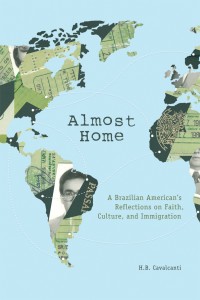
H.B. “Keo” Cavalcanti, MA’86, PhD’90, Almost Home: A Brazilian American’s Reflections on Faith, Culture and Immigration (2012, University of Wisconsin Press)
Cavalcanti, a Brazilian-born scholar and professor of sociology at James Madison University, has spent three decades working and living in the United States. In Almost Home, he reflects on his life as an immigrant and places his story within the context of the larger history of immigration.
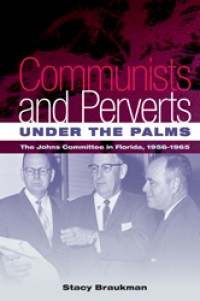
Stacy Braukman, BA’90, Communists and Perverts Under the Palms: The Johns Committee in Florida, 1956-1965 (2012, University Press of Florida)
In 1956, Florida Senator Charley Johns was appointed to chair the newly formed Florida Legislative Investigation Committee, charged with the task of unearthing communist tendencies, homosexual persuasions, and anything they saw as subversive behavior in academic institutions throughout Florida. Today, the actions of the Johns Committee are easily dismissed as homophobic and bigoted. Braukman illustrates how societal anxieties about race, sexuality, obscenity and liberalism—particularly in the formation of the Johns Committee—laid the foundation for the resurgence of conservatism in the 1960s. The book won the Florida Historical Society’s Rembert Patrick Award for a scholarly book about a Florida history topic.
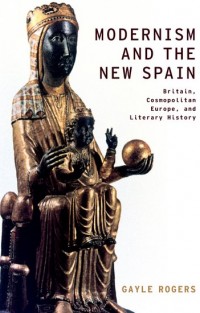
Gayle Rogers, BA’01, Modernism and the New Spain: Britain, Cosmopolitan Europe, and Literary History (2012, Oxford University Press)
How and why did a country seen as remote, backwards and barely European become a pivotal site for reinventing the continent after the Great War? Rogers’ book argues that the “Spanish problem”—the nation’s historically troubled relationship with Europe—provided an animating impulse for interwar literary modernism and for new conceptions of cosmopolitanism. Drawing on works in a variety of genres, the book reconstructs an archive of cross-cultural exchanges to reveal the mutual constitution of two modernist movements—one in Britain, the other in Spain—and stretching at key moments in between to Ireland and the Americas.